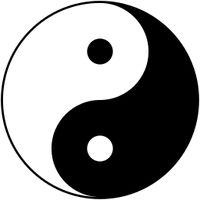The Creator/ Creation Distinction
Why Christians reject Pantheism, Deism and Dualism.
10 JUNE 2017 · 10:30 CET

For our Christian doctrine of God to be orthodox, we must confess both the transcendence and immanence of God. Not only is God beyond the universe but He is also present within it. Both truths, based upon God’s omnipresence, are to be affirmed by all Christians.
Throughout the centuries, there have other Creator/ creation models proposed which we would do well to steer clear of in the name of biblical revelation. Let’s take a look at three of the most prominent.
Model #1: Pantheism
Pantheism is the doctrine that God is all and all is God. It is the exaltation of the immanence of God in detriment of His transcendence and otherness. This kind of thinking lay behind a great part of the theological liberalism that plagued Europe in the nineteenth centuries.
So, what’s so bad about pantheism?
First of all, it denies the personal nature of God. If God is the world-process then He has no independent personality apart from the cosmos. God is the world hence the doctrine of His personhood disappears. This is a blatant denial of biblical revelation.

Secondly, since pantheism states that God is the world-process, it reasons that God is in a constant state of flux and change. There is no notion of God’s immutability, the holy One who uttered to Moses that sacred sentence: “I am that I am” (Exodus 3:14).
God, according to Scripture, does not change; whereas pantheism says that God does nothing but change. He will not be tomorrow what He is today (although using a masculine pronoun for God is problematic for any pantheist as the Lord is more of an ‘it’ than a ‘He’).
In third place, if God is the world-process, His unique holiness is dramatically compromised. Wherever sin takes place, it is God who is sinning as He is all things. God is no longer “holy, holy, holy” but sinful, vile and ungodly. By no means can this false pantheistic deity be in any way approved by Scripture.
Model #2: Deism
Deism states the exact opposite to pantheism. It is the exaltation of the transcendence of God in detriment of His immanence and nearness. It is a modern phenomenon that kicked off following Kant’s Enlightenment revolution.
So, what’s so bad about deism?
The first problem is that it violates the doctrine of God’s providence. God, contrary to deist thought, has not abandoned the world. Scripture makes clear that the Lord continues to sustain and uphold all that He has created. Deism, thus, was the first step towards a wholly secularized religion, devoid of God’s presence.
The second drawback is its outright denial of God’s immanence. Deism forgets that the Spirit of God is still actively at work throughout the whole planet. Not only does the Spirit abide within the Lord’s chosen people but He also moves throughout the whole creation as the Spirit of life.
Wherever there is life, there we have a manifestation of God’s precious Spirit (as the late Wolfhart Pannenberg reminded us).
Thirdly, and this critique could also apply just as easily to the pantheistic model discussed above, deism makes prayer void and useless. Since God is so utterly beyond us and has abandoned the world He created in much the same way as a watchmaker sells off the watches he makes, there is no concept of having any kind of relationship with the Lord of heaven and earth. Therefore, true spirituality dies a death of a thousand qualifications. Deists have no doctrine of prayer.
Model #3: Dualism
Dualism has always been more associated with the Eastern world but it has also appeared in the West under different guises. The key conviction regarding its system is that there are two eternal principles: one good, the other evil. So rather than postulating an eternal God as uniquely sovereign; there are two deities at work, so to speak.
So, what’s so bad about dualism?
To kick off, dualism is an out-an-out attack on the precious sovereignty of God. The Bible speaks of only one God –the blessed Trinity- who reigned long before anything else began.
Before the creation of the cosmos there was simply no other force at work outside of the sphere of God. Everything that was created stemmed, in the last analysis, from the Christian God. Even the devil and all of his phonies only exist because of the sovereign will of the Almighty.

Is there any guarantee that evil won’t thwart God and eliminate Him completely? Dualism makes shipwreck of Christian security and in this sense it is a non-Gospel.
Finally, dualism commits the double evil of downplaying the grandeur of the Scriptural God and making far too much of evil. It forgets how our Protestant confessions of faith reveal how the Lord decided to allow evil entrance into the world in order to glorify His own name.
There is no contest between light and darkness. God is on the throne. No one can prevail against His will: not me, not you, not anything or anyone else for that matter. Even if the whole universe were to revolt against its Maker, God wouldn’t drop a bead of sweat. It’s all under control. Our God reigns.
Conclusion
The Christian, then, must not embrace a pantheistic, deistic or dualistic concept of the Creator/ creation distinction. The Bible confesses that the Lord who is immanent in creation also transcends the universe.
Furthermore, it makes plain that there is no force that can ultimately overthrow His glorious decrees. This means that the Christian can have great confidence regarding the future and display great faith in prayer knowing that the Lord of the universe hears him (her) every time he (she) calls upon Him in the name of the blessed Mediator, Jesus Christ.
Published in: Evangelical Focus - Fresh Breeze - The Creator/ Creation Distinction
